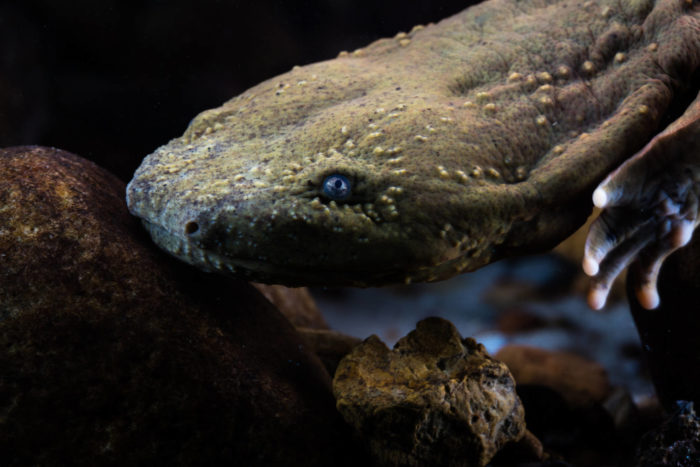WVDNR launches hellbender, mudpuppy citizen science survey
Anglers, members of the public are encouraged to report observations using the Survey123 app.
SOUTH CHARLESTON, W.Va. — In an effort to learn more about the distribution of hellbenders and mudpuppies, the West Virginia Division of Natural Resources has launched a citizen science project to track sightings of these important but declining salamanders around the state.
The project, which will take two years to complete, gives anglers, science enthusiasts and members of the public a chance to help WVDNR biologists map the distribution of hellbenders and mudpuppies and protect these unique amphibians and their habitats.
“While hellbenders and mudpuppies might look fearsome and strange, these salamanders are harmless to humans and sportfish populations and play a big part in keeping our waterways healthy,” said Kevin Oxenrider, project leader. “As we track sightings over the next two years, we want to encourage everyone to keep their eyes open, report their sightings and help us protect these important salamanders and their habitats for future generations.”
Anglers and members of the public who see a hellbender or mudpuppy in their local waterway or inadvertently catch one while fishing can report their sighting to the WVDNR by completing a short questionnaire, which includes questions about the date and location of the observation. Submitting a photo is encouraged. To learn more about the survey visit WVdnr.gov/hellbender-mudpuppy-survey.
Hellbenders and mudpuppies are the only two fully aquatic salamanders native to West Virginia. Neither species is poisonous or venomous, and they eat mainly crayfish, worms and insects, but occasionally eat small minnows or other smaller amphibians. Hellbenders and mudpuppies have not been shown to negatively impact sportfish populations.
Anglers who inadvertently hook a hellbender or mudpuppy should immediately release the animal into the water by cutting the line as close to the hook or extracting the hook (taking care to remove the barb with pliers before extracting). State law prohibits the possession or taking of a hellbender or mudpuppy.
WVDNR biologists will use data collected during the survey to better understand hellbender and mudpuppy distribution and status in West Virginia, and to inform future conservation efforts.
“Every observation counts,” said Oxenrider. “You don’t have to be an angler to participate.”
For more information about hellbenders, mudpuppies and other citizen science projects, visit WVdnr.gov/surveys.

